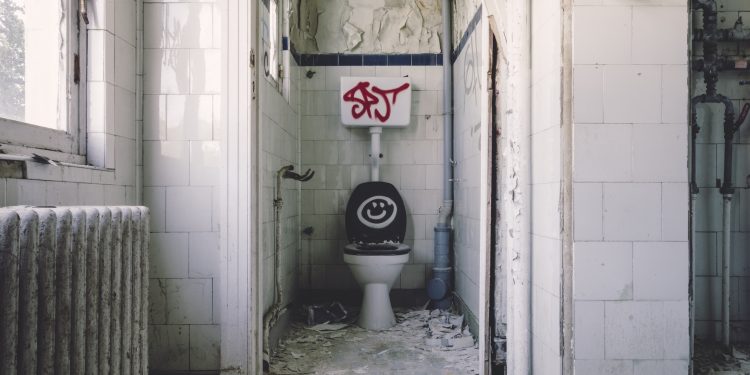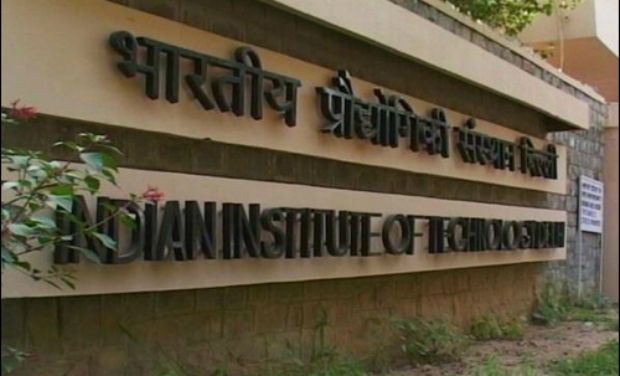The World’s Worst Job: Manual Scavenging

Introduction
The idea of ‘Swachh Bharat’ has been hailed in loud unison for many years, but in bits and pieces. A result of which, nobody knows what the whole picture is all about. While the country is getting set to build toilets, the aspect of cleaning the toilets and ‘who cleans the toilets ’ has become peripheral. A perfect example of this confusion can be seen in Akshay Kumar’s tweet quoting manual scavengers as ‘cleaning soldiers.’
Providentially, the developed part of the country, like the urban cities have slightly better drainage systems to aid the deed. But the rural parts count their blessings if they possess dry latrines, 2.6 million of which requires cleaning by hand, cleaned by man not machines; by the manual scavengers.
Manual scavenging as defined by the UN is the practice of ‘manually cleaning, carrying, disposing or handling in any manner, human excreta from dry latrines and sewers’, which unfortunately, is not only a demand of the rural area.
Arguably, it’s not right to call it a job, it’s rather a consequence of having no alternatives. It’s a compulsion. The workers take home the diseases from the sewers as additional benefits of their work. Besides, the sewers are often filled with, glass/ metal shards, snakes, rats etc in addition to the sewage that makes the condition more vicious.
For the better of it, employment of manual scavengers has been banned in 1993. In 2013, strengthening the ban, a Manual Scavengers Act has been passed, prohibiting manual scavenging in all forms and ensuring that these scavengers are rehabilitated. This was made to ensure they don’t have to resort to the ill practice again, because of unemployment.
But the implementation has been faulty.
What Makes It The Worst Job?
Apart from the very nature of the job, topped with discrimination they face from the society, there are more bases that makes the job worst.
The Caste Angle
Majority of these workers belong to Valmiki or Dalit community, the main reason being casteism. The people of these communities are not only deprived of education, but of job options as well, leading to trails of generations being captive of such inhuman trend.
The other sewer workers who belong to higher classes hardly indulge in handling the sewer work and are often promoted to permanent jobs. An infinite doom remains to be the future in construction for the cleaners of lower class.
Money Woes
The payment is not worth trouble at all. The average salary of a contract/private sewer worker ranges from 6 to 7 thousand per month. While the safai karamcharis get about 20,000, with additional health and retirement benefits, the sewer workers get no benefits. The government instructions regarding minimum wages are not followed by private contractors.
States are setting examples for them, according to the 2015-16 Annual Report of the National Commission of Safai Karamcharis, the states have failed to pay the minimum wages set by the labour ministry. They set their own minimum wages.
Health and Safety Measures
The sewages are filled with toxic gases, methane, carbon monoxide, ammonia and hydrogen sulfide are the most commonly found harmful gases found in sewages. Inhaling such gases have lead to heart attacks, paralysis and in the worst cases, death.
Thought the SC has criminalized entering in the sewers without proper gears, the workers continue to handle the sewage with their bare hands, dressed in minimal clothes.
According to a report in HT, only 30 kits were available for nearly 2 thousand sewer men in Ludhiana. Gloves, boots or gas masks are known to be costly for the agencies, hence they usually remain alien to them.
Skin diseases, poor eyesight and breathing problems are the most common health problems that the workers face.
On top of that, about 1,470 sewer deaths have been reported since 1993 and the 10 lakh rupees compensation that is bound to be given to their families hasn’t find it’s way to them in a long time.
The Suffering Find Its Way To Their Families
Being employed in such a work is not a thing of honour. It has been often seen that people don’t even confess that they are involved in cleaning work to their families due to the pressure of social stigmas. Joginder’s family didn’t know he was a sewage worker until he died in a sewage accident. This adds to the psychological stress that they face because of the work.
The workers distressed by the stench, often find comfort in alcohol addiction. “Many of us become alcoholics. It is difficult to do this in your senses. The stench stays even after we come out,” a worker in Faridabad confesses.
For a job that pays so less, educating the younger generation while struggling to pay for food and medical bills to heal the diseases that comes with the work, is difficult. As a result, the family veers to live in a loop of a single employment output, scavenging.
The Technical Problem
Apart from political will and ill implementation of the ban, sewer system’s structures are the main problem because of which the job exists. If the drainage systems won’t work mechanically, manual handling will be soughted.
Indian Census report of 2011 reveals that more than 2.6 millions of dry latrines exist within the country and from about 7, 94, 390 dry latrines human excreta is cleaned manually. 70 % of which exist in the rural areas and 27% in urban.
Internationally, sewers are designed as such that they are cleaned by machines. Smaller sewer lines with proper slopes insures easy flow of sewage from home to the main lines. The sewers are needed to be designed broad enough so that they are free to be cleaned by machines.
Solutions
The battle against manual scavenging is popularly confused to be the battle to ‘improve the facilities’ for manual scavengers to clean. But that is not the right idea to sustain. Manual scavenging has been banned and it is a battle to ‘remove’ manual scavenging, not one to improve it.
Bezwada Wilson, who won the prestigious Raman Magsaysay award for his work for the Safai Karamchari Andolan quoted for Ht, “Sewer workers are also manual scavengers, since much of what they clean is human excreta. There is a ban on human scavenging. So for us it’s not about safety gear or proper payment. We just don’t want them to go down and clean sewers manually,” resonating the same idea.
Conclusion
Coming back to the tweet of the lead actor of the movie ‘Toilet’, where Akshay Kumar defines ‘manual scavengers’ as the ‘cleaning soldiers of India’, we can see the irony of ‘Swachhta’ in one go. Manual scavenging is illegal. We won’t find the manual scavengers even existing in the papers of government or private agencies they work in. But we know they do and we have been so used to that, that we have never perceived it as something foully inappropriate.
If the ambassador of the ‘Clean India’ campaign, the one who made a movie called ‘toilet’ can be ‘okay’ with watching manual scavenging in practice or rather feel proud of it, we can understand how inhuman we are towards some human. But we can always change.
Manual scavenging largely remains to be a problem built and nourished by the society. We can’t entirely blame systems for it. We are the market, we pay for it and our funds sustain it. More than anything, we are okay with it. All we need to do is to make everyone understand what is wrong with it. All we need to do is to stop providing the world’s worst jobs. It’s time to shut the company down.
